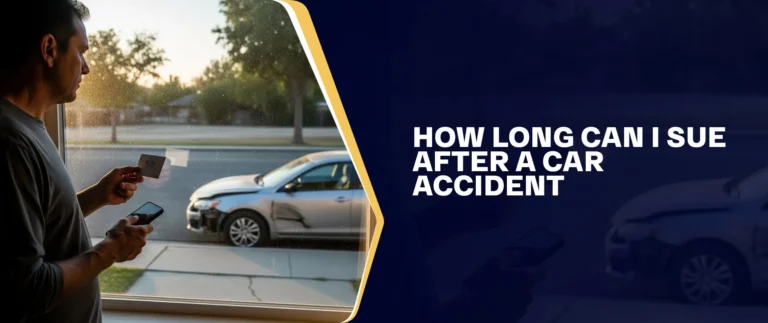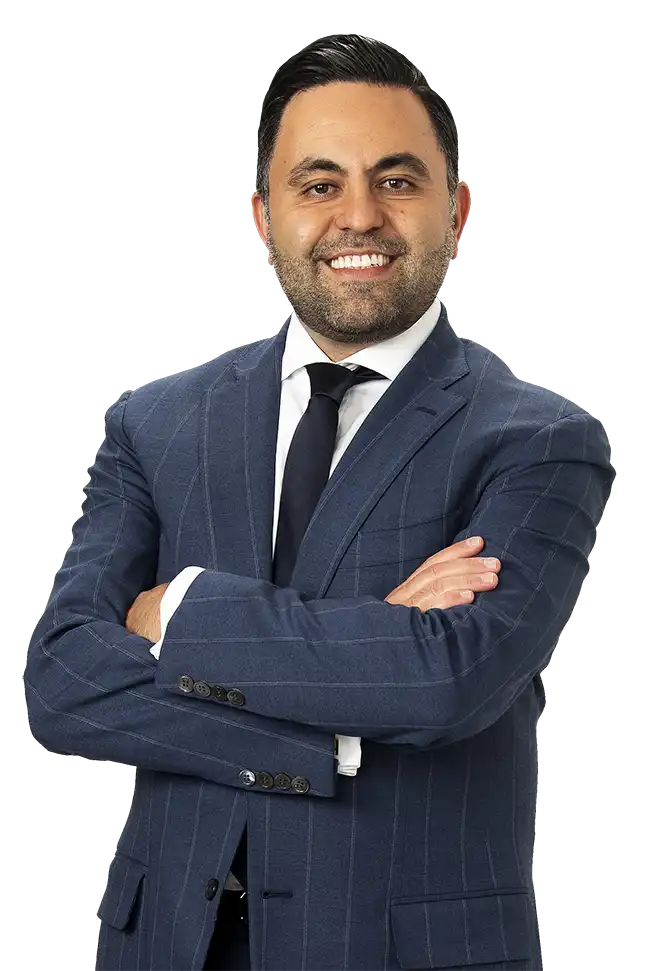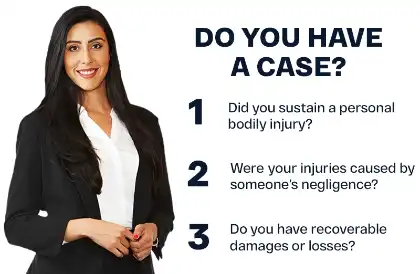TL;DR: Personal injury cases can take time due to factors like ongoing medical treatment, legal complexities, insurance reviews, or court delays. A longer timeline often means your lawyer is working to pursue a more complete and fair outcome.
Table of Contents
Settling a personal injury case is complex and time-consuming, often involving extensive paperwork and negotiations. Clients frequently experience frustration when their lawyer takes longer than expected to resolve the issue.
In this article, we’ll shed light on the reasons behind these delays and offer guidance on expediting the process. We’ll delve into crucial aspects such as evidence collection, damage assessment, negotiations with insurance companies, and preparation for trial. A personal accident lawyer can provide insights into the process and factors that may contribute to case delays.
Injury claims in court or mediation can be challenging, especially if you try to do it alone or make a misstep that might undermine your case. Our personal injury lawyers at Arash Law, headed by Arash Khorsandi, Esq., handle the legal matters of an injury claim and pursue compensation for injured clients. We work on a contingency basis, so you don’t pay anything up front. Our fees are taken as a percentage of your settlement or court award. You won’t pay the attorney’s fees unless compensation is obtained. Note that you may still be responsible for certain case-related costs.
Call us at (888) 488-1391 for a free initial consultation or contact us online.
Factors That Influence The Timeline Of A Case
Several factors play a role in determining why one case might take longer to settle than another.
Here are some common reasons why cases take a long time:
Victim’s Ongoing Medical Treatment
If you sustained serious injuries and failed to reach Maximum Medical Improvement (MMI), you still have future medical expenses that cannot be estimated. Once an injury attorney settles your personal injury claim and your condition does not improve, the settlement will not cover those additional medical costs. This is why personal injury lawsuits regarding severe and long-term injuries take longer to settle. Unfortunately, in many cases, the victims incur high medical costs and are under financial pressure to resolve the matter.
Your Lawyer Is Waiting For Your Medical Records
Your lawyer or their paralegals will need all your medical treatment records once you complete them. They have to get it from your health care providers. These medical records must be certified before being used in court as evidence. Making copies is quicker than the authentication process for records. The time it takes for medical providers to return your legal team’s records varies. A delay in receiving medical records means a delay in processing your injury claims.
The Defendant Is Delaying The Process
In some cases, defendants may take actions that delay the legal process. While not always done with harmful intent, these strategies can extend the timeline of a case. Common delay tactics include:
- Creating challenges in receiving or serving legal documents, such as a copy of a claim.
- Transferring assets or restructuring ownership in ways that complicate financial discovery.
- Filing motions or defenses that may not have strong legal merit.
- Being uncooperative with discovery requests.
- Repeatedly postponing scheduled meetings or critical processes like depositions.
Your Personal Injury Case Is Slowed Down By Legal Problems
Legal issues, such as disputes over identifying the liable parties, the extent of liability, and the amount of damages or compensation, can slow down your claims process.
In some cases, insurance companies may wait to make a settlement offer until key legal issues are clarified. For example, if liability is unclear, insurers may hold off until a lawsuit is filed and expert opinions are presented. In certain situations, they defer any offer until the court rules on whether the plaintiff has a legal right to sue.
Additionally, there can be issues with the damage in your instance. This can occur when the treating doctors for the plaintiff are confused about whether the defendant’s carelessness led to the plaintiff’s injuries. If doctors cannot certainly decide on this issue, insurance companies are less likely to offer a settlement until the plaintiff’s legal team can locate a doctor willing to testify, based on the medical evidence, that the defendant’s fault was the cause. In personal injury cases, it is the plaintiff’s responsibility to prove that the defendant was responsible for the damages.
Your Case Is In Court
Once a case is filed in court, the process slows down. Common reasons why a case takes longer in court are:
- Difficulty in Serving the Defendant or Respondent a Notice of the Claim — A personal injury case cannot proceed until the defendant has been properly served with the court papers. The usual process for serving the defendant with a notice is personal service. It means that the process server must personally deliver the summons to the defendant. If the defendant is not present at the indicated address, service of notice will take more time.
- Discovery Takes Time — Discovery is the process by which each side exchanges information or evidence. The usual forms of discovery include:
- Interrogatories — Contains a list of written questions asked by the opposing party, which must be answered in writing under oath within a given period (usually 30 days).
- Requests for the Production of Documents or Things — Refers to the formal request that the opposing party produce documents, electronic information, or other relevant items.
- Requests for Admissions — These are written statements from one party requesting another party to admit or deny the document’s contents under oath. To illustrate, in a car accident, the plaintiff may ask the defendant to admit that they were at the place and date specified in the statements during the vehicular accident.
- Depositions — This is the recording and sworn oral statement of a witness. This requires a court reporter to transcribe the proceeding, which may be conducted through video or both. The witness being deposed may or may not be a party to the case (plaintiff or defendant), or they may be a factual or expert witness.
A party that disagrees with a discovery request may submit motions and request hearings before the judge. It takes some time.
- Court Dockets Are Clogged — It means that courts are swamped with cases. As a result, scheduling hearings for a particular case can take a long time. Resetting or postponing hearings is common.
Difficulties In Computing All The Medical Treatment Costs
Accidents like car collisions could lead to serious injuries that take a while to recover from. For instance, brain damage and bone fractures could take months to heal. To proceed with the compensation terms negotiated in your personal injury lawsuit, you must determine how much of your medical expenses can be filed for reimbursement.
While you are receiving treatment, the medical expenses may continue to accumulate, and your personal injury case could be delayed until you receive a finalized medical bill and all costs for your lawsuit are calculated.
There Is A Large Amount Of Compensation Involved In Your Personal Injury Case
When a personal injury case involves a substantial amount of compensation, the settlement process can take longer. This is often due to the thorough review required to evaluate the full extent of liability, damages, and long-term impact of the injuries.
Insurance companies will thoroughly investigate the claim, reviewing medical records, expert evaluations, and legal arguments before making a substantial settlement offer. In some situations, they may present early settlement offers while the case is still developing. This can place pressure on injured individuals to accept less than the full value of their claim, especially when medical bills or lost income create financial strain.
While early offers can provide quicker resolution, it’s important to carefully consider whether they reflect the full scope of current and future losses. In high-value cases, it’s not uncommon for negotiations to take longer as both sides work to reach a resolution based on the available evidence.
You Have Not Reached Maximum Medical Improvement
“Maximum Medical Improvement” (MMI) refers to the extent of your injury-related recovery. Even though it doesn’t necessarily mean you are entirely recovered, it does indicate that your treatment has stabilized and will continue in this manner moving forward. It is vital to wait until you achieve MMI since you can only comprehend the total cost of your medical expenses and any long-term effects and impairments. If you are still receiving treatment, it is difficult to predict whether you will fully recover from your injuries or not.
Because the total costs and effects of injuries are unclear before MMI, the compensation process may be delayed. In this situation, a personal injury lawyer can help by coordinating with medical experts, gathering necessary documentation, and advising on the appropriate timing to pursue a settlement based on the progression of your recovery.
How Long Does A Personal Injury Lawsuit Take?
The duration of a personal injury case varies, ranging from a few months to several years.
Several key factors influence the timeline, including:
- Extent of Injuries — The severity of your injuries plays a crucial role. Less severe injuries may lead to quicker settlements.
- Settlement Amount — If you’re willing to accept a smaller settlement for a faster resolution, it can expedite the process.
- Comparative Fault — If you share partial blame for the injuries, it can extend the case timeline.
- Court Backlog — The court’s caseload can affect the scheduling of hearings and trials.
- Defendant Type — Cases involving insurance companies or individual defendants may progress differently.
- Trial Inclination — If you’re determined to take the case to trial, it can prolong the process.
Some cases are resolved swiftly, particularly when accepting the initial settlement offer from the insurance company. This may also occur if your injuries are relatively minor, you’ve reached Maximum Medical Improvement (MMI), and the defendant’s liability is clear-cut.
In contrast, certain cases can be protracted. When the defendant is personally responsible for the compensation, they may be less inclined to settle and may prefer to take their chances with a court verdict. Cases involving severe injuries, substantial medical expenses, or long-term disabilities often lead to extended timelines. Additionally, if an appeal is pursued, it can significantly extend the duration of the case.
Understanding The Stages Of A Personal Injury Claim Process
After an accident, the personal injury claim process unfolds in several stages:
- Initial Settlement Offer — Following the accident, the defendant’s insurance adjuster may approach you with an initial settlement offer. This offer may not reflect the full extent of your damages, especially if made early in the process. Accepting it also means waiving your right to pursue further legal action.
- Demand Letter — If you reject the initial offer, the next step is to send a demand letter. This formal document outlines key aspects of your case, including accident details, injuries, fault determination, and a compensation demand. It sets a timeframe for response and is typically sent to the responsible individual, their employer (if applicable), and their insurance company.
- Defendant’s Response — The defendant can respond to the demand letter in several ways: by paying the demanded amount, proposing a counteroffer, or refusing the demand outright.
- Filing a Complaint — If the defendant’s response is unsatisfactory, you may proceed to file a complaint, initiating a personal injury lawsuit. This complaint is presented in court and served on the defendant, summarizing your case and reiterating the demand for compensation.
- Defendant’s Answer — The defendant files an answer to the complaint, responding to each allegation by admitting, denying, or stating insufficient information to admit or deny.
- Discovery — Both sides engage in discovery, gathering evidence to strengthen their case. This involves obtaining eyewitness statements, police reports, medical records, depositions, and interrogatories. The evidence shapes the course of settlement negotiations.
- Settlement Negotiations — As evidence accumulates, settlement discussions intensify. The courts may encourage settlement through mediation or scheduled conferences.
- Trial (Rare) — If a settlement remains elusive, the case proceeds to trial. However, the majority of personal injury cases are settled before reaching this stage.
Deciding when to settle your case involves careful consideration, and consulting an experienced accident attorney can be invaluable. While some prefer quick settlements for immediate compensation, legal experts often advise pursuing fair compensation for all losses, including pain and suffering, as well as property damage.
Contact Our California Personal Injury Attorneys
If you or a loved one has suffered an injury due to someone else’s negligence, it’s advisable to seek legal representation promptly. Our personal injury attorneys can help protect your rights and pursue compensation to aid in your recovery. We handle various personal injury cases, including car accidents, motorcycle crashes, dog bite cases, truck collisions, and more.
Arash Law, led by Arash Khorsandi, Esq., is committed to advocating for the rights of injury victims in California. You don’t need to navigate this alone; our team can guide you through the claims process and handle the legal matters on your behalf.
Reach out to us at (888) 488-1391 to arrange a complimentary initial consultation with one of our legal team members.











